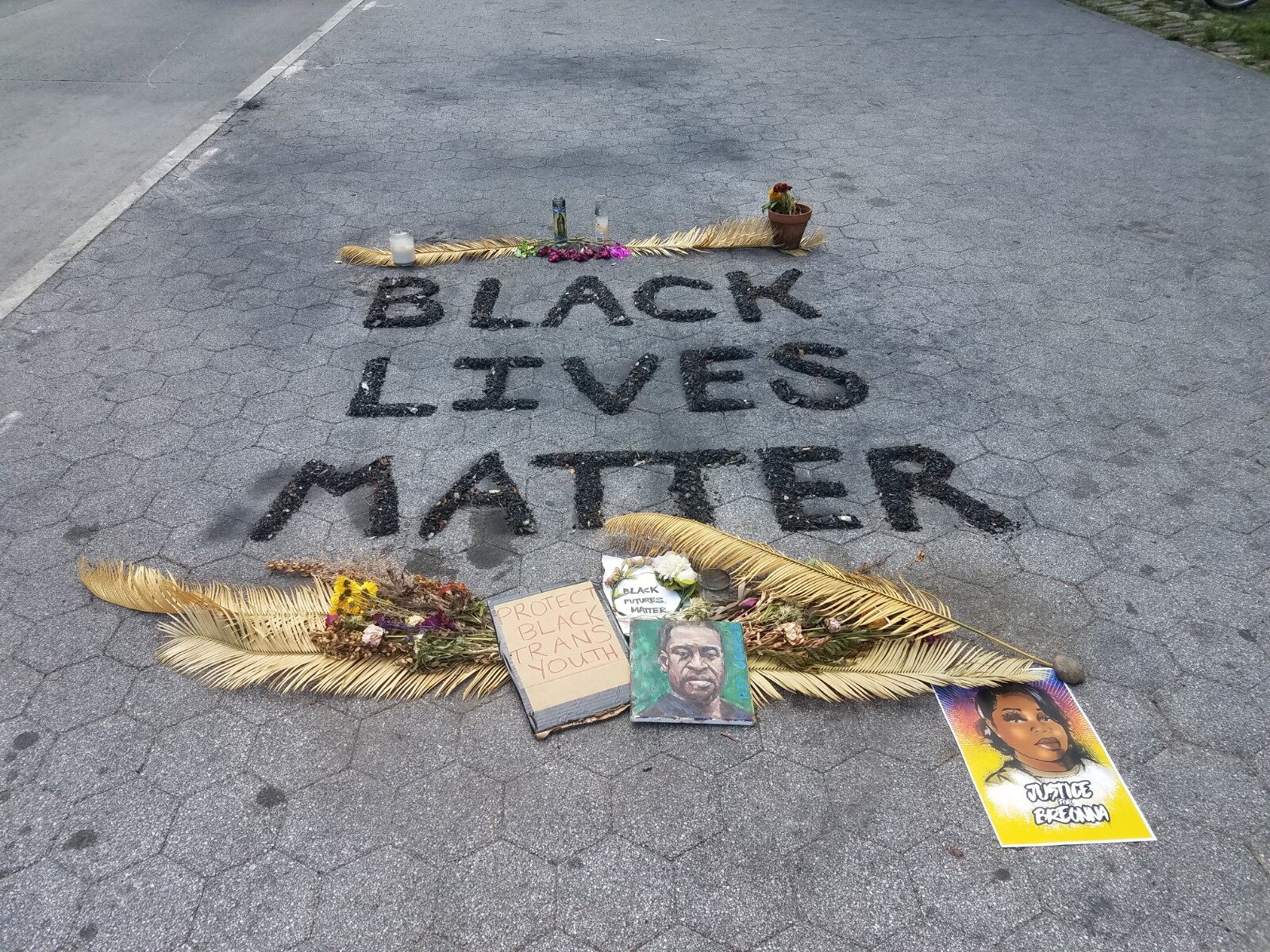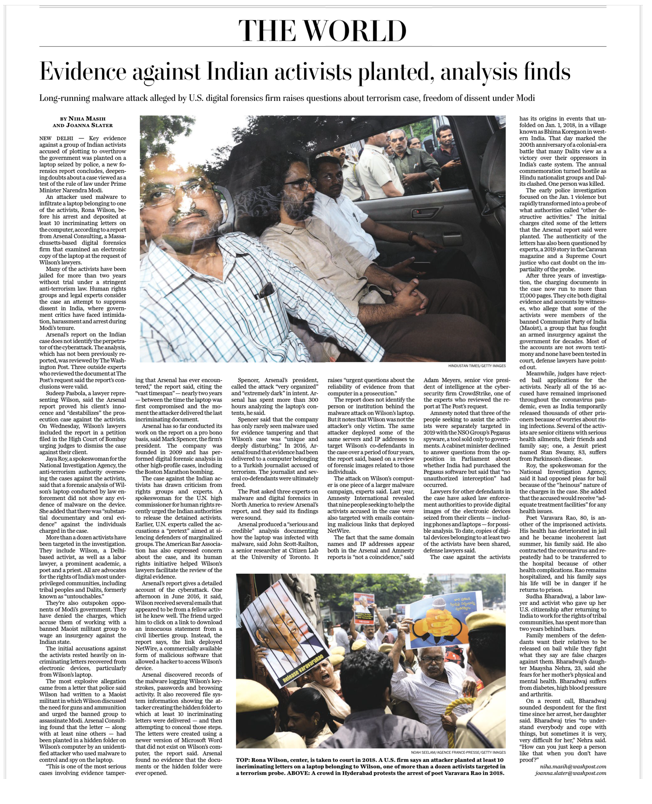I write this in a country where Mikkel Bolt Rasmussen’s book, Trump’s Counter-Revolution, was recently translated and published by Les Éditions Divergences and has appeared as a valuable diagnosis for our time. These days, Italy is of particular interest to those observing the far-right in European government. The Minister of the Interior, Matteo Salvini, who seems as though he may as well be the head of the Italian government, or at least the weight that tips the political scale, is the perfect expression of the Trumpian model that Rasmussen examines in his text: the manner of self-presentation, the keywords, the use of police as the primary means of governing the population, contempt for formal rules, unscrupulous use of social media, interventionism on everything and anything, racism as the only form of weaponized propaganda, or nearly so, the anti-elite rhetoric—all elements which effectively unify far-right political action on a global scale.
Anti-migrant raids done by small groups of Italian neo-fascists seem like folklore when compared to governmental action, which has as its goal to enact a perfectly capitalist and democratic project. All of the old rhetoric of the former neo-fascism—the heroes, the eternal values, the natural community, the anti-modern mysticism, etc.—will have become almost completely outdated in the face of this ultra-fascist capitalism. This goes for anti-fascist rhetoric too, needless to say.
From the United States to France, Brazil to Poland, Italy to England, a ferocious counterrevolutionary force has appeared armed with an agenda, a vision, and a common language—this is to say, a global strategy. These things are often difficult to perceive as being necessary in anti-systemic movements, and they are clearly lacking in the declining left. This is one of the reasons that fascist capitalism seems to be picking up speed everywhere we look.
Nevertheless, the most interesting part of Rasmussen’s book does not consist of demonstrating evidence of the arrival of a certain “late fascism” but, for one, in the analysis of this governmental affirmation of the extreme right as an essential element of global counterrevolution, this is to say a reaction to the cycle of movements of 2010–2011—from Occupy, the Arab Spring and the Indignados to those of Black Lives Matter—and, also, in not separating the question of fascism from that of democracy.
The question, in particular, to which I think this book provides answers is the following: what happened in order for the powerful movements and insurrections which covered the globe at the beginning of the 2010s to have been seemingly overrun and then, honestly, defeated by the dark wave that’s drowning us all?
The fact that the author, in addition to being a militant communist, is an art historian is not unrelated to his capacity to interpret the new aestheticization of politics as essential to the implementation of social fascism around the world. Let us refer to the chapter “Politics of the Image,” where he arrives at this conclusion: “The image is not solely a medium, it has become the substance of contemporary politics” (p. 53). On the other hand, it’s a typical error of the left to regard the obvious coarseness [grossièreté] of the aesthetic-media operation of the pop far-right (if Trump uses televised models of entertainment, Salvini uses those of the bar conversation or football ultras) with the eyes of a moralist, believing oneself to be more intelligent, refined, civilized, or ultimately more “aesthetically appealing” [beau] than the likes of Trump, Salvini, Orban or Bolsonaro, instead of thinking about the radical politicization of the aesthetic as an indispensable weapon in the current configuration of this historical conflict.
In a letter Karl Korsch wrote to Brecht, he said that when it comes down to it, the Nazi Blitzkrieg was no more than the energy of the left concentrated and then released by other means: this energy which in the 1920s seemed to be spreading and pushing towards a Europe of [communist] Councils, which ten years later had been redirected and found itself used by its adversaries, who would launch the global working class into a gigantic and fratricidal “material battle” that would not be able to achieve any other end than the spiritual and material annihilation of the working class as it was, from which came the defeat of every revolutionary perspective of the twentieth century. At the moment of the defeat, Walter Benjamin had to acknowledge, much to his dismay, that the fascists seemed to understand better than the revolutionary left the rules which govern popular emotions and feelings, affects which today are still regarded by every nuance of the left with an air of superiority, if not outright disdain, and they always prefer “rational,” “common sense,” “progressive,” or “civic” arguments, which is to say all that which not only fails to convince practically anyone among the working class, but which, on the contrary, generates the opposite effect of producing even more hatred and resentment.
It is this which produced Trump, who “partially recuperated Occupy’s analysis concerning the financial crisis and bank bailouts” (p. 43), while in Italy, popular hatred of the elites was captured and redirected in the war against migrants, the Romani, and the ticks (ticks [zecche] is a name given to activists in Italian social centers). All of this has the backdrop of the obvious contempt of all those who feel the need to oppose the institutions of the European Union, which are destined, for better or for worse, to be transformed by “sovereignism”. In Brazil, the left’s corruption, its faith in the economy, its pretense to know how to govern capitalism better than others, its chronic distrust of autonomous movements, and, it goes without saying, its anti-revolutionary vocation have delivered the country an executioner of Bolsonaro’s caliber. We could go down the path of demonstrating this having happened in many other countries. The movements, for their part, have missed the kairos [kairos is an Ancient Greek word meaning the right, critical, or opportune moment] for transforming their power into a proper revolutionary force and a good part of this now returns against them. From this we gather a sort of political law which is of personal concern to us: in periods of significant change, each error of interpretation, each error of underestimation, each moment lacking in courage, every hesitation in the unfolding of a potentially revolutionary moment, contributes in an increase in the the power of the enemy, of fascism. The corollary of this law is that we must be done with every leftist affect which inhabits us.
Another important element that Rasmussen brings to our attention is how Trump, faced with the metropolitan youth of Occupy and the African Americans of Black Lives Matter, knew how to mobilize white workers and employees who lived outside or on the margins of urban centers, who suffered the hardest blows of the economic crisis that began in 2008. In this way “Trump protested the protest, the objective of which was to violently push back any possibility of changing the system from top to bottom” (p. 41). Similarly, this is how justified rage against the metropolis was in many countries subdued and used by those who have always controlled the very same metropolises. We cannot let this happen again, which is why another corollary is that we must do away with the illusion, cultivated by the left, of the reappropriation of the metropolis or its alternative management: the metropolis is unreformable, uninhabitable, and taken hold of by a process of becoming-fascist henceforth evident to those who clearly see the reality of the situation. When we think of the Yellow Vests’ France and their anti-metropolitan vocation, it’s monumental that they’ve succeeded in avoiding a maneuver similar to those of Trump or Salvini, even if we haven’t yet seen the final outcome of the situation—again, even when it comes to the Yellow Vests, the political rule goes that if we don’t meaningfully and deeply strike, fascism will have every opportunity to use the force built up by the movement. If Rasmussen explains how the Trump effect succeeded in producing itself before the critique of structural racism brought by Black Lives Matter was able to be combined with a challenge to the capitalist mode of production, then, in France, one should bet on the combination of social contestation, anti-metropolitanism, and ecological critique before Power can cut communication between the different tendencies which, effectively, could just as likely develop into a broad revolutionary complex endowed with a major ability to strike as to become diverted and separated into several counter-revolutionary forces.








